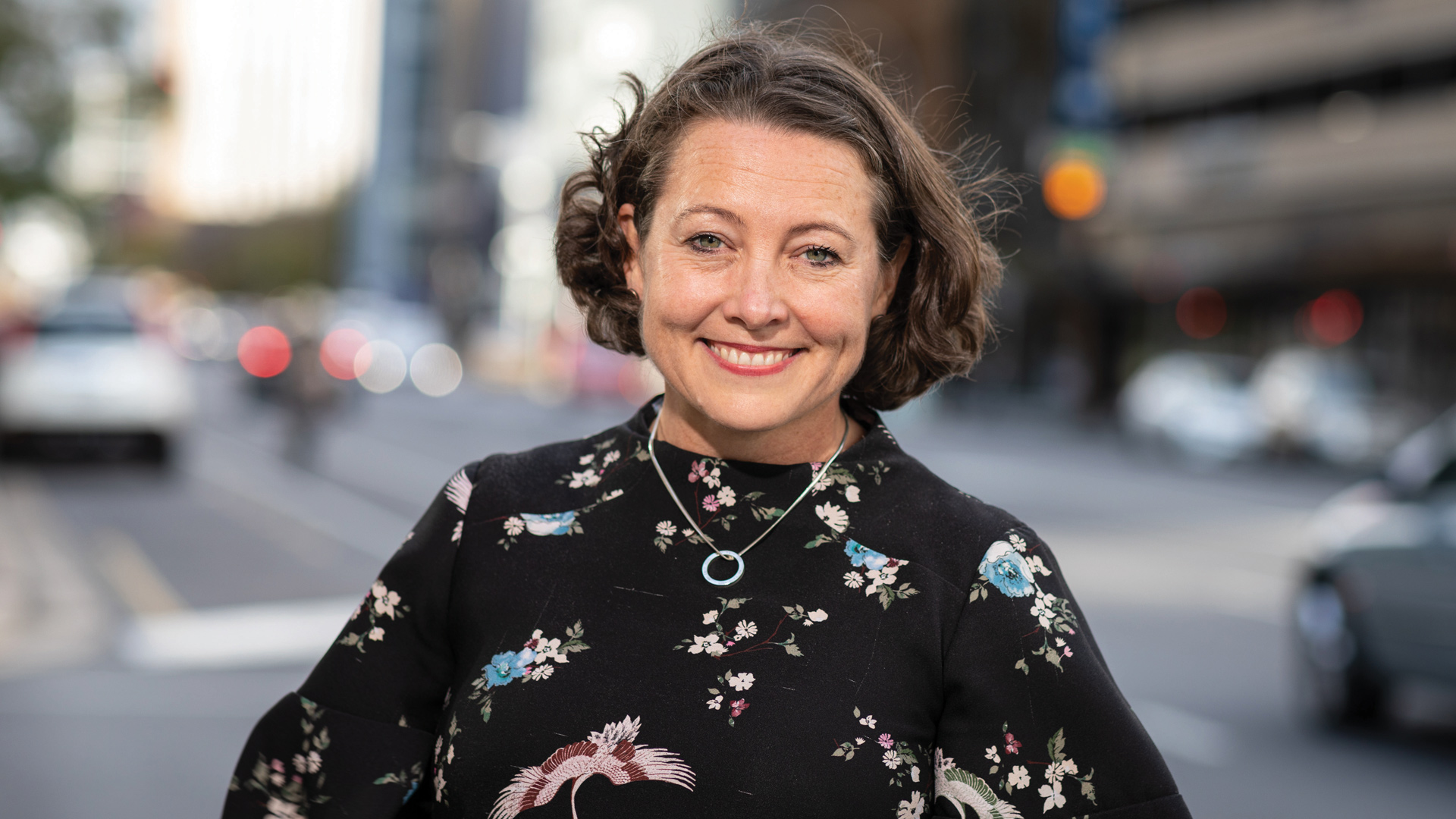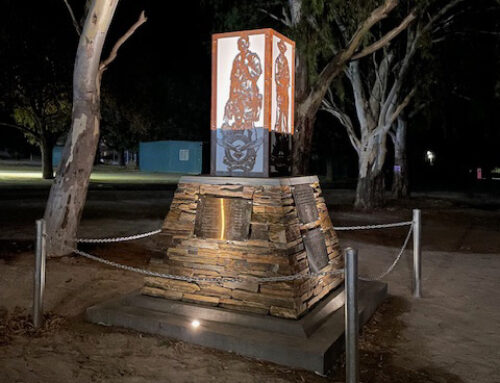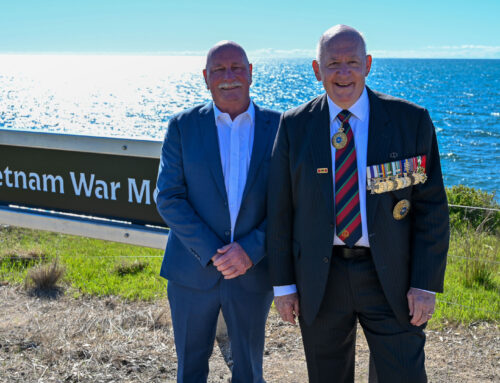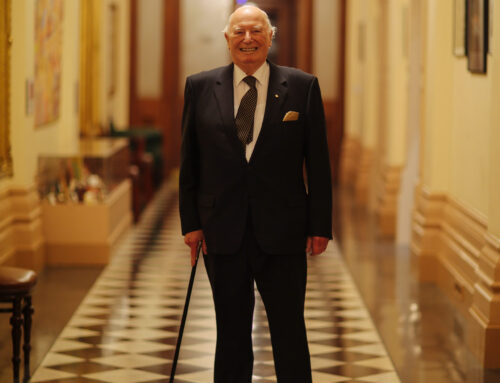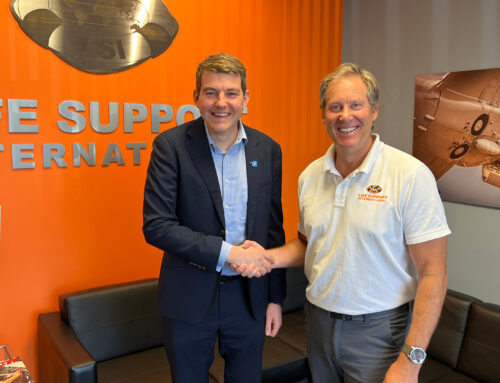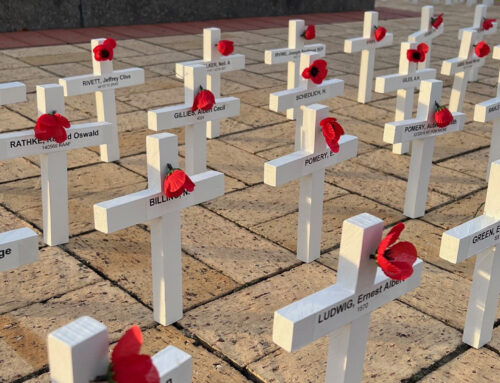Meet Sharon Mascall-Dare, Ambassador for Military and Emergency Services Health Australia (MESHA), journalist, broadcaster, writer, and veteran.
Sharon studied modern languages at the University of Oxford in the 1990s and became a BBC European affairs specialist, before emigrating to Australia with her husband and young family in 1999 where she continued to work in the media, broadcasting for the BBC, Radio Australia and writing for The Age newspaper in Melbourne.
In 2013, she completed a PhD at the University of South Australia, using media coverage of the Anzac narrative as a focus of her research when she became aware of opportunities within the Australian Defence Force and applied to join the Australian Army Reserve as a Public Affairs Officer.
Meanwhile, she continued civilian work as a strategic communications advisor specialising in Defence and veterans’ affairs within the defence industry, academia and the not-for-profit sector.
Following a deployment to Iraq with the Australian Army, Sharon founded StoryRight, a program that provides serving and ex-serving ADF members with the skills and self-confidence to present their own experience to civilian employers.
Sharon is also qualified as a peer-to-peer counsellor with MESHA – a part of The Hospital Research Foundation Group – after completing a graduate certificate in counselling and psychotherapy at the University of Adelaide in 2018. She helps to deliver quality research and wellbeing programs for veterans, emergency service workers and families in need of support.
Ahead of International Women’s Day, Veterans SA spoke to Sharon about her roles and experiences working with the veteran community.
How did you get started with your career?
MESHA draws on my background in three areas: strategic communications, military service and peer-to-peer counselling. I’ve been working in media and communications for almost 40 years now – I started writing and broadcasting when I was teenager. My study pathways and career have always had one thing in common – I want to give people a voice; I feel that freedom of expression is closely linked to social justice and a ‘fair go’ for all.
What has surprised you most about working in the industry?
I continue to be inspired by the skills, experience and resilience of the veterans and emergency services workers I have the privilege to meet at MESHA; I am equally surprised by the challenges they face in achieving adequate recognition for their skills and experiences in the civilian world. While veterans’ tendency to be humble can be a factor, there is a need for the wider community to challenge assumptions and stereotypes and give veterans a ‘fair go’.
What has been the most challenging part of your career so far?
My husband and I have both made tough choices at times. His work as a CFS volunteer and bushfire mapping specialist has often taken him away from home; my work in Defence has also required absences, including a six-month deployment to Iraq. Our children are now adults and have embarked on their own adventures overseas, but it’s still hard being apart. Like the next person, spending time with family is very precious to me.
What is your proudest achievement?
Whenever I hear that someone has landed a job after attending a StoryRight workshop I feel an overwhelming sense of pride. Everyone who comes to our workshops has a story; every one of those stories is unique. When I hear that a graduate has landed their dream job, or found a boss who sees their potential, I feel truly, deeply happy for them. You could say I’m living vicariously, but to me it’s inspiration.
This year’s International Women’s Day theme is #BreakTheBias. Did you/do you face challenges as a woman in the industry?
While I’ve never felt that my gender has been a barrier, as I grow older I’m increasingly aware of ageism and the impact it is having on some of my friends. For women who’ve taken time away from work to raise a family, they’re experiencing two types of discrimination: as they reach their 50s, employers seem more interested in employing younger people; if they are offered work, the level of seniority does not reflect their life experience or maturity.
If yes, how have you/do you overcome them?
I’d like to see a more person-centric approach to talent acquisition and organisational development, where corporations and organisations consider the unique sets of skills and experiences that individuals bring, rather than necessarily looking for ‘the right fit’, drawing on pre-existing beliefs, assumptions, and criteria. It’s through integration of diversity that we achieve renewal and innovation, not by forcing people to fit a mould or expectation.
What advice would you give young women looking towards a career in the sector?
I would recommend that young people considering a career in the veterans’ community undertake a strengths analysis or similar exercise to determine their individual skills, values and capabilities. I would not be limited by current qualifications and experiences; I would see them as a launching pad to try new things and engage in further personal and professional development. If you’re reading this, and you’re a veteran or emergency services worker looking for a new start, we’d love to hear from you at MESHA. A StoryRight workshop, or other MESHA program, could be the place to start on your journey towards a new career.
